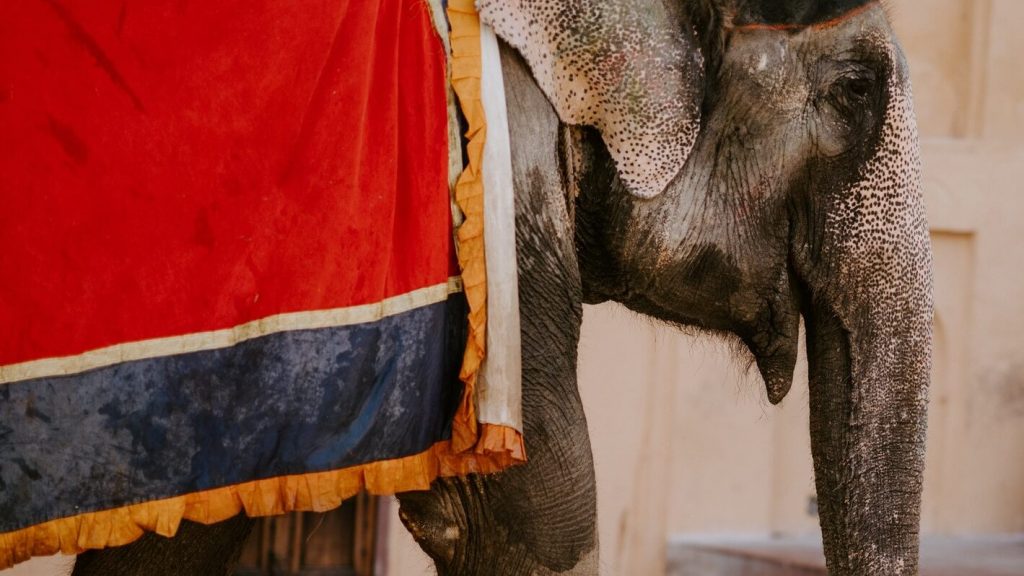The University of South Carolina (USC)–Aiken pledged to never again host a circus that involves animals.
Prior to the announcement, the university hosted circuses that used wild animals for entertainment at its Convocation Center. Most recently, the Loomis Bros. Circus — which features three captive elephants and six white Siberian tigers — performed at the center.
PETA sent an appeal to the university highlighting accusations made regarding Brian Franzen, the Loomis Bros’ elephant and big cat exhibitor. According to PETA, Franzen “has been cited for numerous violations of the federal Animal Welfare Act,” including keeping caged tigers in the rain without shelter and failing to provide animals with medical care. He was also recently filmed striking an elephant in the jaw with a bullhook — a weapon similar to a fireplace poker with a sharp hook on the end. Further, a recent report stated that animals exhibited by Franzen were exposed to “painful handling techniques.”

Following the appeal, the university announced that the Loomis Bros. Circus event would be the last animal-inclusive circus to appear on campus.
“By banning animal circuses, USC–Aiken is recognizing that there’s nothing entertaining about beating and intimidating elephants, big cats, or other animals into performing tricks,” PETA Foundation Associate Director of Captive Animal Law Enforcement, Rachel Mathews, said in a statement.
“PETA is calling on audiences everywhere to skip circuses that use animals and choose wonderful animal-free ones, such as Cirque Italia, Circus Vargas, and Kelly Miller Circus,” she added.

USC–Aiken joins more than 620 venues and communities across America that have banned or placed restrictions on using animals for entertainment. These moves are echoed around the globe as the public shifts its focus away from entertainment that requires animal exploitation. Late last year, India placed a ban on the use of wild animals in circuses after a year-long investigation that exposed severe animal cruelty. Shortly after, Italy made a similar vow and closed 100 circuses, freeing approximately 2,000 animals in the process.
Circuses in England, Wales, and Scotland received similar bans.
Captive animals are still widely permitted across America (though, New York City banned the practice last year). However, data suggested that a majority of the U.S. population oppose animal involvement in circuses. One poll revealed 69 percent of Americans were concerned about animals in the circus, with 31 percent saying they were very concerned.


